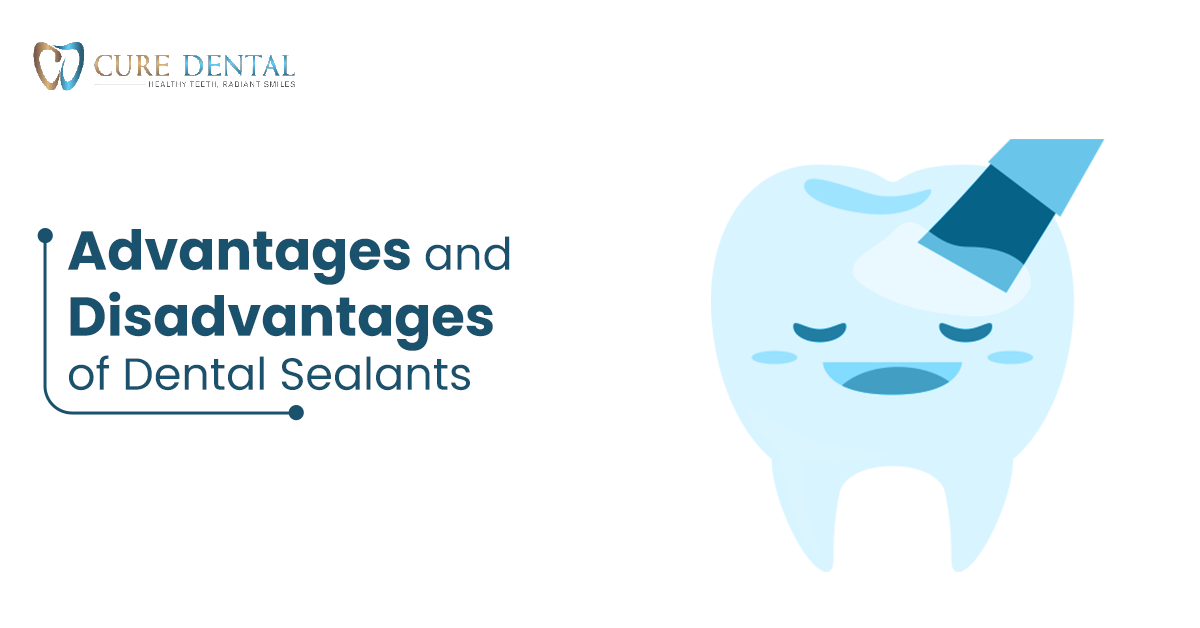Although dental sealants can be applied to individuals of any age, children typically receive them. The molars and premolars primarily perform the function of chewing food. Additionally, these teeth are more difficult to clean and have spaces where food can become trapped. When applied to teeth, sealants (applied in tooth fissures) create a protective barrier that keeps decay-causing bacteria and tartar at bay.
Dental sealants are a great way to keep cavities at bay. They have benefits and drawbacks, just like any dental procedure.
Advantages of Dental sealants
The American Dental Association and the Centers for Disease Control and Prevention have found that children who get dental sealants have a lower risk of developing cavities. Here are some of the benefits of sealants.
Risk prevention
The resin that makes sealants is one type of plastic. There are many who are concerned that sealants containing the synthetic chemical bisphenol A (BPA) could pose health risks to humans when consumed in high quantities. But some sealants do contain BPA, and even if they do, it’s in extremely low concentrations that aren’t harmful.
Simple and painless
Initially, the dentist applies the sealant to the teeth using a liquid. As it dries, the resin cements itself to the tooth. The dentist applies the sealants one by one, and then, within minutes, they harden thanks to a specialized curing light.
Each tooth receives a sealant application in a matter of minutes. It should take approximately thirty minutes to finish, though that can vary based on the number of teeth that require treatment. The technique is painless, so there is no need to numb the mouth beforehand.
Virtually invisible
Sealants can be completely see-through or slightly tinted to match the color of your teeth. After application and hardening, they are barely perceptible in the mouth. Back teeth, which are naturally less noticeable, are the most common areas for their application because of how well they blend in with the surrounding teeth.
Protect for long
Dental sealants often endure for approximately five years. Some instances have shown sealants to endure for up to a decade. This can provide long-term protection for children’s teeth throughout the formative years when they are more likely to get cavities. During regular checkups, your child’s dentist can assess the condition of the sealants and reapply them if needed.
Economic
Applying dental sealants is relatively affordable. Compared to fillings, sealants are far more affordable, and they may end up saving you a ton of money over time if they prevent the need for multiple fillings.
Disadvantages of Dental Sealants
Although sealants have numerous benefits, they do have a few drawbacks.
Temporary
Sealants can prevent cavities for a long time, but they wear off and expose teeth to decay again. However, you can monitor their condition by scheduling regular dental checkups. The dentist can reapply sealants as needed, with no upper limit on the number of applications.
May not be covered by insurance
Insurance may not cover adult sealants, but it might cover children’s sealants. If you’re an adult with a genetic predisposition to cavities, there might be an exception. If this does not happen, you may be on the hook for the cost of adult sealants if you so desire.
It may be too late to put them in place
If a tooth has a cavity or filling already, it is not a good candidate for a sealant. Some people are worried that sealants can trap decay within teeth that already have some damage. Underneath the sealant, the cavity may expand and worsen.
This could happen, but it’s quite unlikely. To ensure that teeth that are already vulnerable do not get sealants, dentists conduct comprehensive oral exams, which may include X-rays, to detect any signs of decay or cavities.
Parents have sent their young children to the dentist for sealants, only to learn that the procedure cannot proceed due to the children’s pre-existing cavities. As a result, it is critical for parents to start taking their children to the dentist regularly and diligently as baby teeth begin to erupt. Even if you’re an adult, your dentist can tell you if you’re a good candidate for dental sealants.
Conclusion
Children, who are more likely to get cavities than adults, can benefit greatly from dental sealants. However, it is also important to consider the drawbacks.

